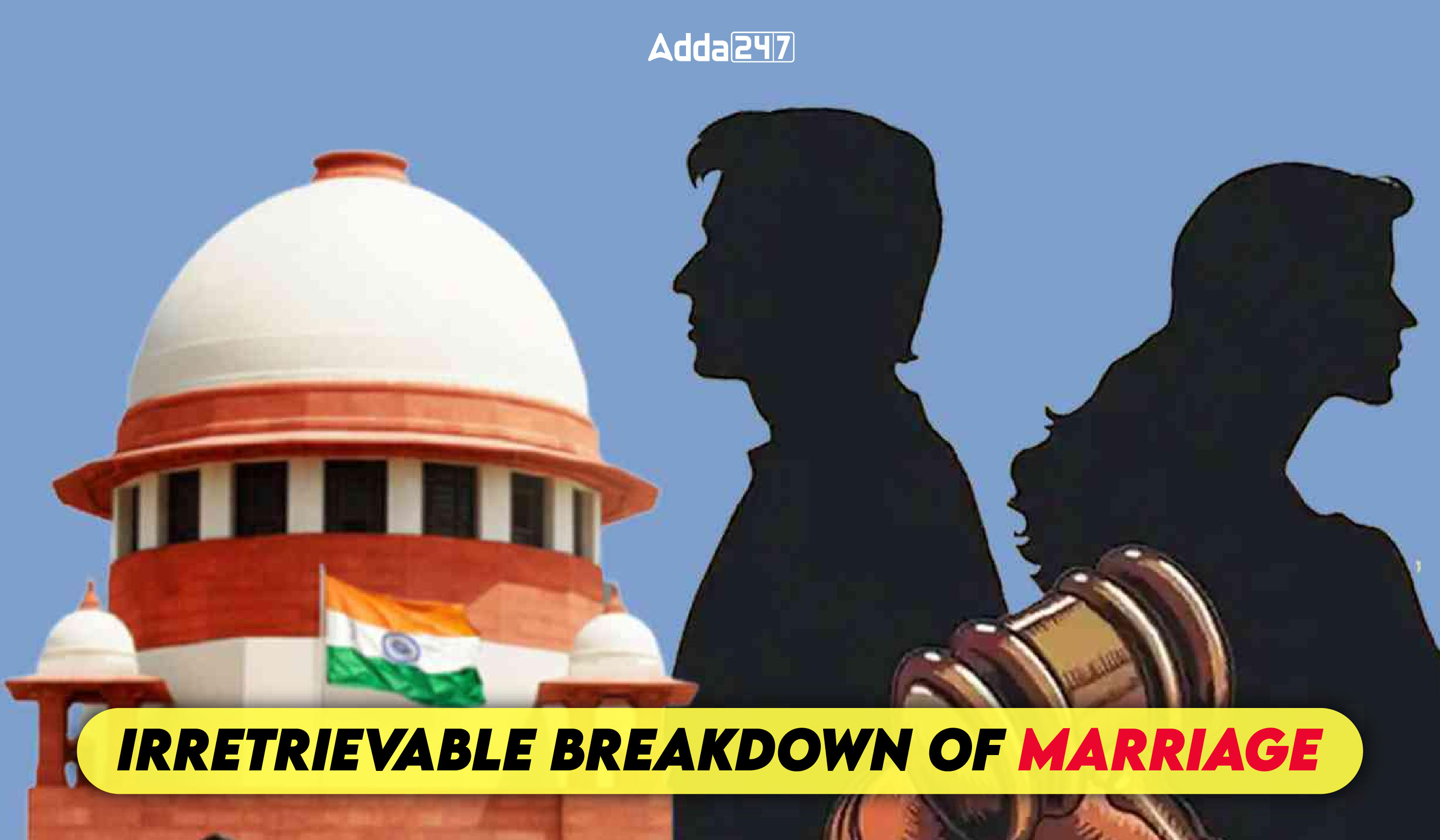Table of Contents
The concept of irretrievable breakdown of marriage (IRB) has been a point of significant discussion and judicial consideration in India. While the Hindu Marriage Act, 1955, and the Special Marriage Act, 1954, provide exhaustive grounds for divorce, irretrievable breakdown is not explicitly included. However, the Supreme Court of India has often stepped in, exercising its powers under Article 142 of the Constitution to grant divorce on this ground, highlighting the need for a legislative amendment.
Defining Irretrievable Breakdown of Marriage
Irretrievable breakdown of marriage refers to a situation where a marriage is beyond repair. Despite efforts at reconciliation, the parties are unable to live together and have been living apart for an extended period. This concept is recognized in many jurisdictions worldwide but is not formally codified in Indian law. The Law Commission of India, in its 71st Report (1978), recommended including irretrievable breakdown as a ground for divorce, suggesting that a marriage should be dissolved when it has ceased to exist in reality.
IRB: Legal Provisions and Judicial Discretion
The Hindu Marriage Act, 1955, does not explicitly recognize irretrievable breakdown as a ground for divorce. However, Section 13 of the Act lists several grounds such as adultery, cruelty, desertion, and mental disorder. Despite this, the Supreme Court of India has, in numerous cases, granted divorce on the grounds of irretrievable breakdown under its discretionary powers conferred by Article 142 of the Constitution. This Article allows the Court to pass any decree or make any order necessary to do complete justice in any cause or matter pending before it.
IRB: Key Case Laws
1. Naveen Kohli v. Neelu Kohli (2006): This landmark case saw the Supreme Court recommending the inclusion of irretrievable breakdown of marriage as a ground for divorce. The Court observed that forcing the parties to live together would only lead to greater misery.
2. Shilpa Sailesh v. Varun Sreenivasan (2023): The Supreme Court ruled that it could dissolve a marriage under Article 142 if it was irretrievably broken down, waiving the mandatory six-month waiting period under the Hindu Marriage Act. This judgment emphasized the Court’s discretionary power to grant divorce even if one party opposed it.
3. Rajib Kumar Roy v. Sushmita Saha (2023): The Court granted divorce, noting that prolonged bitterness, dead emotions, and long separation indicated an irretrievable breakdown of marriage.
4. Poonam v. Surender Kumar: The Supreme Court granted divorce on the grounds that the parties had been living apart for over 19 years, thus failing the fundamental purpose of marriage.
5. Nirmal Singh Panesar v. Paramjit Kaur Panesar: In this case, the Supreme Court declined to grant divorce as the wife was willing to fulfill her marital obligations, highlighting that the power under Article 142 is discretionary and not a matter of right.
IRB: Need for Legislative Reform
The absence of irretrievable breakdown as a statutory ground for divorce in Indian law necessitates a legislative amendment. The Law Commission of India has repeatedly recommended such an inclusion, noting that when a marriage is beyond repair, it serves no purpose to keep the legal bond intact. The judicial system should focus on equitable solutions, including alimony and custody arrangements, ensuring that the interests of both parties and any children involved are protected.
Conclusion
The concept of irretrievable breakdown of marriage, while not formally recognized in Indian law, has been acknowledged and acted upon by the Supreme Court of India through its discretionary powers under Article 142. This approach underscores the need for legislative reform to include irretrievable breakdown as a ground for divorce, reflecting the evolving nature of marital relationships and the importance of individual well-being. Recognizing this ground would align Indian family law with global practices and provide a more humane and practical solution to failing marriages.
Also Read: Right to a Speedy Trial: A Fundamental Right in India



 TSPSC Group 1 Question Paper 2024, Downl...
TSPSC Group 1 Question Paper 2024, Downl...
 TSPSC Group 1 Answer key 2024 Out, Downl...
TSPSC Group 1 Answer key 2024 Out, Downl...
 UPSC Prelims 2024 Question Paper, Downlo...
UPSC Prelims 2024 Question Paper, Downlo...




